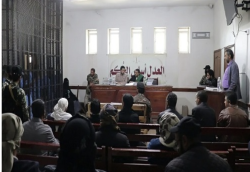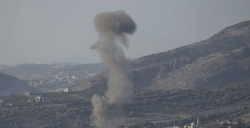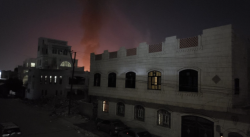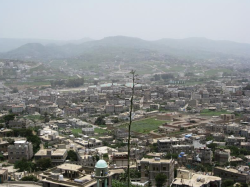Covid-19 vaccination: Is India running out of doses?
- 2021-04-09 03:07:46


 Pierre Rayer: Art, Science, and Happiness: The Universal Mission of Transmission to Future Generations through Patronage at the Louvre Abu Dhabi
Pierre Rayer: Art, Science, and Happiness: The Universal Mission of Transmission to Future Generations through Patronage at the Louvre Abu Dhabi Ahly crowned Super champions after dramatic extra-time win over Modern Future FC
Ahly crowned Super champions after dramatic extra-time win over Modern Future FC Yemeni Honey..A Development Wealth Threatened By Conflict And Climate Change
Yemeni Honey..A Development Wealth Threatened By Conflict And Climate Change California wildfires: Millions warned of possible power cut
California wildfires: Millions warned of possible power cut Central African rebels launch attacks near capital
Central African rebels launch attacks near capital Yemen's Houthi Court Issues Verdict Against 17 in UN Staff Detention Case
Yemen's Houthi Court Issues Verdict Against 17 in UN Staff Detention Case IDF strikes Hezbollah sites across Lebanon, kills two operatives
IDF strikes Hezbollah sites across Lebanon, kills two operatives Yemen : Loud Explosions Heard at Houthi-Controlled Camps in Sana’a
Yemen : Loud Explosions Heard at Houthi-Controlled Camps in Sana’a Liverpool slump continues, Man City lose, Chelsea move second
Liverpool slump continues, Man City lose, Chelsea move second Yemen : Armed Robbery Attempt in Ibb Leaves Three Dead and Injured
Yemen : Armed Robbery Attempt in Ibb Leaves Three Dead and Injured
